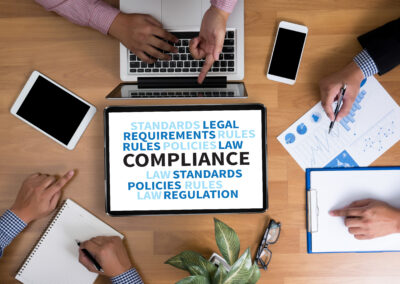With the increasing regulatory demands in the life science industry, compliance can be challenging. Start-ups, small, and even mid-sized pharmaceutical and medical device companies often struggle to balance keeping up with compliance and innovation and growth. New regulations can feel like they stunt forward progress. Sometimes companies simply don’t have the bandwidth to address growing compliance concerns such as CAPAs piling up or preparing for new regulations to go into effect. However, the risks of non-compliance could be enforcement actions such as warning letters, product recalls, fines, and a poor reputation for quality and safety, driving sales down. So, when is outsourcing the solution for your business?
If you find that you have limited expertise in-house, or even limited resources, this could be a sign you should consider outsourcing. If you’re struggling to meet regulatory deadlines, repeated internal audit findings and significant compliance gaps, it may be time. Or, if your company is growing rapidly and needs help scaling up QMS processes quickly, outsourcing to another company can help quickly meet your needs. Lastly, if the cost of hiring and keeping full-time staff is too high, then outsourcing through staff augmentation may alleviate this burden.
There are many advantages of outsourcing regulatory and quality work to consultants which is why so many businesses do it. Consulting firms have access to incredibly specialized experts that might not be feasible to keep on as full-time staff. Additionally, the support is scalable and tailored to your company’s size and needs. Furthermore, consulting firms tend to be significantly more cost-effective than a full internal team [1]. Since consulting firms employ experts that are leaders in various fields, often former FDA and the like, there is a reduced risk of compliance errors. Finally, by outsourcing to a consulting firm, this frees up your employees to focus on research, development, and building the company [1]. Consulting firms with a proven track record of success can provide the largest advantages.
For example, here at EMMA International we had a medical device manufacturer client that was expanding their product portfolio to include AI/ML SaMD’s, but didn’t have staff with the appropriate quality and regulatory qualifications. EMMA International deployed a team of SMEs in the areas of software quality assurance, design controls, and regulatory affairs. The team conducted regulatory due diligence to determine the appropriate pathway for the device, submitted pre-submissions, acted as liaison with the FDA on behalf of the company, prepared the design history file in accordance with 21 CFR 820, ISO 13485, ISO 14971, IEC 62304. The team also prepared a software architectural design document, software requirement documentation, conducted code inspections, executed unit level test cases, and completed other software design quality deliverables. Lastly, we prepared the regulatory submission (De Novo) in accordance with FDA regulatory requirements and trained client stakeholders on quality/regulatory requirements for the device for sustainability post project completion.
Overall, if you are having trouble keeping up with regulatory requirements, need more experts, are growing, or need a quick solution, outsourcing may be the answer for your company. Reflect on your current needs and outlook and consider outsourcing to stay competitive.
EMMA International is here to provide full-circle solutions for all aspects of pharmaceutical and medical device quality and regulatory outsourcing. Give us a call at 248-987-4497 or email us at info@emmainternational.com to learn more about how EMMA International can take the stress out of quality and regulatory compliance!
[1] Patel (2021)The Pros and Cons of Outsourcing, Retrieved on 26 November from: https://www.forbes.com/sites/deeppatel/2017/07/17/the-pros-and-cons-of-outsourcing-and-the-effect-on-company-culture/





